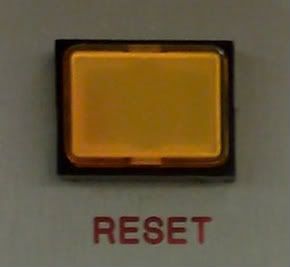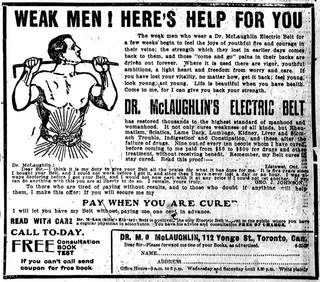
 |
|
|
#181 |
|
Senior Member
How Do You Identify?:
. Join Date: Nov 2009
Location: .
Posts: 2,905
Thanks: 4,151
Thanked 5,824 Times in 1,722 Posts
Rep Power: 21474855            |

__________________
Every normal man must be tempted at times to spit on his hands, hoist the black flag, and begin to slit throats. - H. L. Mencken |
|
|

|
| The Following 3 Users Say Thank You to Mister Bent For This Useful Post: |
|
|
#182 |
|
Senior Member
How Do You Identify?:
. Join Date: Nov 2009
Location: .
Posts: 2,905
Thanks: 4,151
Thanked 5,824 Times in 1,722 Posts
Rep Power: 21474855            |
Ezee and I like to start out our day with a little calisthenics - keeps us looking young!
We get our cardio workout in the racism thread. It's not easy being retired!
__________________
Every normal man must be tempted at times to spit on his hands, hoist the black flag, and begin to slit throats. - H. L. Mencken |
|
|

|
| The Following 2 Users Say Thank You to Mister Bent For This Useful Post: |
|
|
#183 |
|
Senior Member
How Do You Identify?:
still ballin' Relationship Status:
Triple X Join Date: Nov 2009
Location: west side
Posts: 2,544
Thanks: 5,716
Thanked 6,486 Times in 1,638 Posts
Rep Power: 21474855            |
 Morning reps.
__________________
|
|
|

|
| The Following 2 Users Say Thank You to Queerasfck For This Useful Post: |
|
|
#184 |
|
Senior Member
How Do You Identify?:
. Join Date: Nov 2009
Location: .
Posts: 2,905
Thanks: 4,151
Thanked 5,824 Times in 1,722 Posts
Rep Power: 21474855            |
...but for those of you who aspire to the svelte physiques of the bromosexual set:
 I haven't forgotten the ladies! For that dynamic torpedo-look bust: 
__________________
Every normal man must be tempted at times to spit on his hands, hoist the black flag, and begin to slit throats. - H. L. Mencken |
|
|

|
| The Following User Says Thank You to Mister Bent For This Useful Post: |
|
|
#185 | |
|
Senior Member
How Do You Identify?:
still ballin' Relationship Status:
Triple X Join Date: Nov 2009
Location: west side
Posts: 2,544
Thanks: 5,716
Thanked 6,486 Times in 1,638 Posts
Rep Power: 21474855            |
Quote:
__________________
|
|
|
|

|
| The Following User Says Thank You to Queerasfck For This Useful Post: |
|
|
#186 |
|
Senior Member
How Do You Identify?:
. Join Date: Nov 2009
Location: .
Posts: 2,905
Thanks: 4,151
Thanked 5,824 Times in 1,722 Posts
Rep Power: 21474855            |
Wow! No wonder you're such a happy fella!
I'm on my way over, think she'll give me a preview? 
__________________
Every normal man must be tempted at times to spit on his hands, hoist the black flag, and begin to slit throats. - H. L. Mencken |
|
|

|
|
|
#187 | |
|
Senior Member
How Do You Identify?:
still ballin' Relationship Status:
Triple X Join Date: Nov 2009
Location: west side
Posts: 2,544
Thanks: 5,716
Thanked 6,486 Times in 1,638 Posts
Rep Power: 21474855            |
Quote:

__________________
|
|
|
|

|
|
|
#188 | |
|
Senior Member
How Do You Identify?:
. Join Date: Nov 2009
Location: .
Posts: 2,905
Thanks: 4,151
Thanked 5,824 Times in 1,722 Posts
Rep Power: 21474855            |
Quote:

__________________
Every normal man must be tempted at times to spit on his hands, hoist the black flag, and begin to slit throats. - H. L. Mencken |
|
|
|

|
| The Following User Says Thank You to Mister Bent For This Useful Post: |
|
|
#189 |
|
Senior Member
How Do You Identify?:
still ballin' Relationship Status:
Triple X Join Date: Nov 2009
Location: west side
Posts: 2,544
Thanks: 5,716
Thanked 6,486 Times in 1,638 Posts
Rep Power: 21474855            |
Although, Mister Bent does enjoy showing off his pipe.....
__________________
|
|
|

|
| The Following User Says Thank You to Queerasfck For This Useful Post: |
|
|
#190 |
|
Senior Member
How Do You Identify?:
. Join Date: Nov 2009
Location: .
Posts: 2,905
Thanks: 4,151
Thanked 5,824 Times in 1,722 Posts
Rep Power: 21474855            |
Just don't try smoking it!
__________________
Every normal man must be tempted at times to spit on his hands, hoist the black flag, and begin to slit throats. - H. L. Mencken |
|
|

|
| The Following User Says Thank You to Mister Bent For This Useful Post: |
|
|
#191 |
|
Senior Member
How Do You Identify?:
Satan in a Sunday Hat Preferred Pronoun?:
Maow Relationship Status:
Married Join Date: Jan 2010
Location: The Chemical Valley
Posts: 4,086
Thanks: 3,312
Thanked 8,740 Times in 2,566 Posts
Rep Power: 21474857            |
Dirty. Both of you.
__________________
bÍte noire \bet-NWAHR\, noun: One that is particularly disliked or that is to be avoided.
|
|
|

|
|
|
#192 |
|
Senior Member
How Do You Identify?:
. Join Date: Nov 2009
Location: .
Posts: 2,905
Thanks: 4,151
Thanked 5,824 Times in 1,722 Posts
Rep Power: 21474855            |
We are not!
See? We have soap. Now be a dear and pick it up for me?
__________________
Every normal man must be tempted at times to spit on his hands, hoist the black flag, and begin to slit throats. - H. L. Mencken |
|
|

|
|
|
#193 |
|
Senior Member
How Do You Identify?:
Satan in a Sunday Hat Preferred Pronoun?:
Maow Relationship Status:
Married Join Date: Jan 2010
Location: The Chemical Valley
Posts: 4,086
Thanks: 3,312
Thanked 8,740 Times in 2,566 Posts
Rep Power: 21474857            |
I think instead I am gonna say NO, then GO, and TELL someone I trust.
__________________
bÍte noire \bet-NWAHR\, noun: One that is particularly disliked or that is to be avoided.
|
|
|

|
| The Following User Says Thank You to betenoire For This Useful Post: |
|
|
#194 | |
|
Senior Member
How Do You Identify?:
. Join Date: Nov 2009
Location: .
Posts: 2,905
Thanks: 4,151
Thanked 5,824 Times in 1,722 Posts
Rep Power: 21474855            |
Quote:
I'm sorry? Is this like that newfangled Stop, Drop and Roll? Kids these days, I never can keep up!
__________________
Every normal man must be tempted at times to spit on his hands, hoist the black flag, and begin to slit throats. - H. L. Mencken |
|
|
|

|
|
|
#195 | |
|
Senior Member
How Do You Identify?:
Satan in a Sunday Hat Preferred Pronoun?:
Maow Relationship Status:
Married Join Date: Jan 2010
Location: The Chemical Valley
Posts: 4,086
Thanks: 3,312
Thanked 8,740 Times in 2,566 Posts
Rep Power: 21474857            |
Quote:
You know. What do you do if you're walking home from school and a stranger offers you a ride? NO-GO-TELL! You say NO, then GO, and TELL someone you trust! I'm surprised you don't remember this? Maybe they were only aired in Canada.
__________________
bÍte noire \bet-NWAHR\, noun: One that is particularly disliked or that is to be avoided.
|
|
|
|

|
| The Following 2 Users Say Thank You to betenoire For This Useful Post: |
|
|
#196 |
|
Member
How Do You Identify?:
A pretty little thing Preferred Pronoun?:
Fatale Relationship Status:
Independently owned and operated Join Date: Apr 2010
Location: Afternoons in Utopia.
Posts: 832
Thanks: 1,090
Thanked 1,292 Times in 486 Posts
Rep Power: 3051091            |
This place is nasty. A lady can't walk in here without concern that she is going to step in something repulsive.
Can you please hire a maid or something...? 
|
|
|

|
|
|
#197 | |
|
Senior Member
How Do You Identify?:
still ballin' Relationship Status:
Triple X Join Date: Nov 2009
Location: west side
Posts: 2,544
Thanks: 5,716
Thanked 6,486 Times in 1,638 Posts
Rep Power: 21474855            |
Quote:

__________________
|
|
|
|

|
| The Following 2 Users Say Thank You to Queerasfck For This Useful Post: |
|
|
#198 |
|
Member
How Do You Identify?:
A pretty little thing Preferred Pronoun?:
Fatale Relationship Status:
Independently owned and operated Join Date: Apr 2010
Location: Afternoons in Utopia.
Posts: 832
Thanks: 1,090
Thanked 1,292 Times in 486 Posts
Rep Power: 3051091            |
|
|
|

|
|
|
#199 |
|
Senior Member
How Do You Identify?:
still ballin' Relationship Status:
Triple X Join Date: Nov 2009
Location: west side
Posts: 2,544
Thanks: 5,716
Thanked 6,486 Times in 1,638 Posts
Rep Power: 21474855            |
Maid's day off. But feel free to clean if you want.

__________________
|
|
|

|
| The Following 2 Users Say Thank You to Queerasfck For This Useful Post: |
|
|
#200 | |
|
Senior Member
How Do You Identify?:
bigender (DID System) Preferred Pronoun?:
he/him or alter-specific Relationship Status:
Unavailable Join Date: Apr 2010
Location: Central TX
Posts: 3,538
Thanks: 11,051
Thanked 13,969 Times in 2,590 Posts
Rep Power: 21474855            |
Greyson recommended I post this here
 Quote:
__________________
I'm a fountain of blood. In the shape of a girl. - Bjork What is to give light must endure burning. -Viktor Frankl
|
|
|
|

|
| The Following User Says Thank You to Nat For This Useful Post: |
 |
|
|